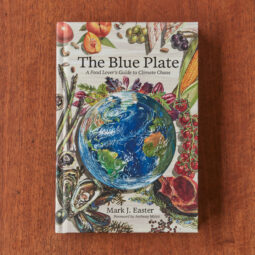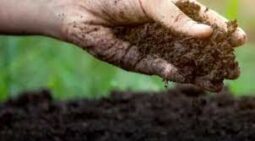 The Blue Plate in a Red-hot World (start time: 7:46) While adding cream to your morning cup of coffee, or digesting the hamburger that you grilled last night, you might not have been asking yourself, What’s the carbon footprint of these ingredients and meals? Understandable. Our guest today, ecologist Mark Easter, however, has pondered this question intensely for many years, when he grocery shops, plans his next meal, and researches. Easter is a so-called greenhouse gas accountant, one who measures the sources and sinks of GHG emissions from agricultural practices.
The Blue Plate in a Red-hot World (start time: 7:46) While adding cream to your morning cup of coffee, or digesting the hamburger that you grilled last night, you might not have been asking yourself, What’s the carbon footprint of these ingredients and meals? Understandable. Our guest today, ecologist Mark Easter, however, has pondered this question intensely for many years, when he grocery shops, plans his next meal, and researches. Easter is a so-called greenhouse gas accountant, one who measures the sources and sinks of GHG emissions from agricultural practices.
It’s a vexing and critical calculus. After all, agriculture generates more than 10 percent of U.S. greenhouse gas emissions. Easter’s debut book, The Blue Plate: A Food Lover’s Guide to Climate Chaos (Patagonia), has just been published. It highlights not just the causes of our climate crisis, but also a growing number of farmers, ranchers and orchardists who are practicing low-carbon, soil-enhancing methods on their land, and as a result boosting their crop yields and revenues.
Hosts: Susan Moran, Joel Parker
Show Producer/Executive Producer: Susan Moran
Engineer: Joel Parker
Headline contributors: Beth Bennett, Joel Parker, Shelley Schlender
Listen to the show here:
Podcast: Play in new window | Download (Duration: 27:46 — 25.4MB)
Subscribe: RSS





